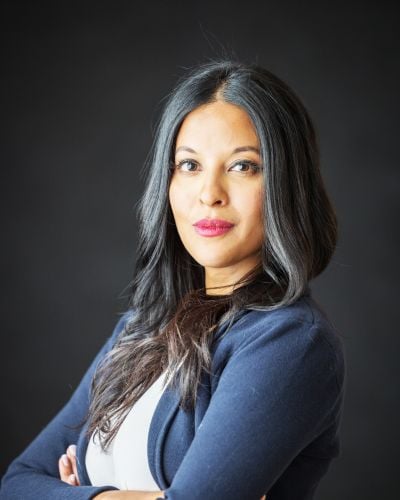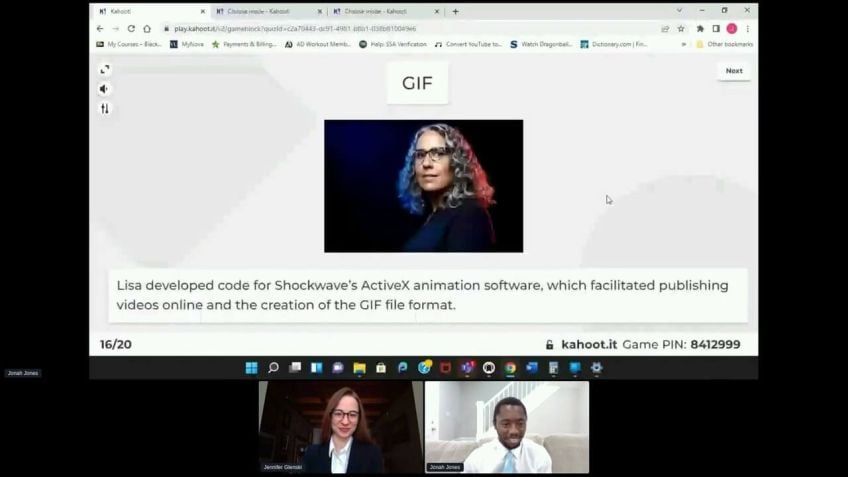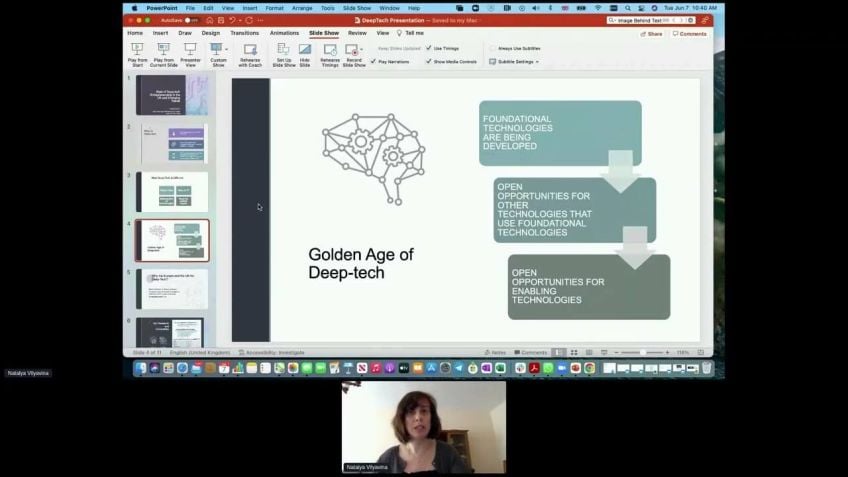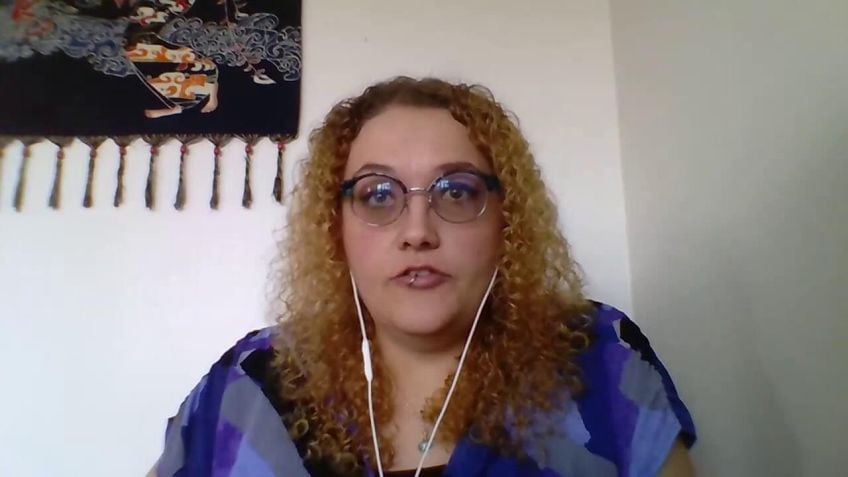Who will ensure inclusivity in science and medicine?
Sanskriti Thakur
Chief Growth OfficerInclusivity in Science and Medicine: Addressing Global Challenges
Hello, my name is Sanskriti Takur. I would like to share my insights on the importance of inclusivity in science and medicine during this Women in Tech Global Conference.
The Imperative of Science in the 21st Century
Science, often considered complex and elusive, plays a critical role in addressing 21st-century challenges such as sustainability, health management, and climate change response. More importantly, science is the key to unlocking economic prosperity.
However, gaps abound due to gender disparity and challenges in providing healthcare to women and children. This lack of equity creates barriers to global productivity and hampers inclusive development, making it clear that we can't achieve universal prosperity without inclusive access to healthcare and science.
Impacting Lives Through Medicine
Creating medicine is a lengthy process that takes a decade. This lengthy timeline means that if we fail to instil equity in medicine creation today, we will be a decade behind in providing medical solutions for everyone. Our reliance on clinical trials accentuates the need for these trials to be diverse and accessible. Any lack of diversity can delay life-saving medications and treatments for large parts of the world.
The Pursuit of Diversity in Science
Diversity in science goes beyond mere representation; it pertains to ensuring that we have a population that is representative of the disease's age and sex distribution. Unfortunately, statistics reveal a consistent racial disparity in trial patients, implying that our current medical solutions may not be universally effective.
Access to Essential Medicines and The Future of Our Children
Despite the advances in science, 2 billion people still lack access to essential medicines. This grim reality underscores the need for change, both in how we look at science and how we approach inclusivity in its discourse. Fortunately, advancements in technology have shown promise, especially in digital methods applied to clinical trials and novel research. However, to see real impact, it is vital to address the underlying science and trials and ensure equitable access to them. For instance, women, who represent more than half of the planet's population, see less than 1% of healthcare research and development funding invested in conditions that primarily affect them. This discrimination has ramifications for future generations and the overall health landscape.
Addressing Inequity: An Opportunity, Not Just A Challenge
Investing in women's health and empowerment is not just equitable, it's profitable. Several studies show the positive return on investment when women's health is prioritised. Indeed, failing to address female health issues and other inequities could lead to an estimated $28 trillion potential loss by 2025.
Moving Forward: Investing Differently, Global Unity, and Skillful Execution
- Invest Differently: We need to modernize and revamp our 100-year old approach to investing in women's health. This would include meeting established targets by key organizations like the United Nations.
- Global Unity: It's high time we started functioning as a global society. A coordinated global guidance across countries is necessary for a prompt and effective response to health crises.
- Skillful Execution: Rapid technological advancement should be skillfully managed to ensure its optimal impact on global health and economic productivity.
Thank You For Joining
Thank you for showing interest in helping accelerate science by promoting inclusivity and equity. Your support contributes to global health improvement, prepares us for natural changes, and ensures worldwide economic growth. I'm Sanskriti Takur, and I look forward to our continued journey towards a more informed, healthier, and more inclusive world. Let's keep the conversation going. Thank you again!
Video Transcription
My name is Sanskriti Takur.Um I'm here today with the Women in Tech Global Conference to talk to you about inclusivity in science and medicine, spent the last 20 to 25 years in life sciences, half of that in industry leading uh companies in the biotech medical device and Pharma space and the other half in strategy consulting.
So science uh is very important to me and I'm, I'm excited to share with you uh my perspective. In addition, I welcome any questions or comments in the chat and we will be sure to address them towards the end of the session. So I think that people mostly consider science um unless they're inside the industry as something a bit further away, it is harder to touch. But um what I'm here to share with you is that in fact, science is critical to the 21st century goals of sustainability. Without the baseline of science, we don't have the ability to manage health. We don't have the ability then to respond at a community level to climate change and the challenges of a progressing earth. And finally, we don't have the ability to unlock economic prosperity. Some of the gaps as it pertains to impacts and inequity in science are seen before us because of gender lack of parity, because of our inability to unlock health for women and Children. And because of challenges to providing health care to women, especially in family planning and maternal health, we see massive challenges to global productivity and barriers to women as well as diverse populations around the world. As a result, he is not possible in a global fashion without inclusive and affording medicines. For those of you who are not quite familiar with how we make medicine. Medicine takes a decade.
In fact, to be identified, to be tested, to be brought to market and then to be brought to people around the world. It takes one decade to bring a novel investigational research product to people. And as a result, if we do not create equity in making medicine today, then we are a decade behind in making medicine for everybody. If this $1.3 trillion industry is defined by what we call clinical trials, clinical trials allows us to test medicines so that we know that they're safe, we know that they work for the global population. But what happens when those trials are not diverse and they're not accessible to everyone. What happens if those trials don't have enough women don't have enough Children? Then we are 10 years behind creating life saving medications and treatments for most of the world. There have been decades of inequity. There have been decades of lack of inclusivity in the construct of making medicines and treatments and the un and understanding the underlying science. Today, about 70% of participants of trials of research in science are in the US and are white.
People of color represent about 39% of the US population, but only 2 to 16% of those who are included in the making of science. And the list goes on. Despite the fact that females are 51% of the population, there are about 41% of participants and women experience adverse reactions two times. As often as men, you can already see that despite the growth which is in the purple line of the treatments approved by the FDA, the inequities remain. And as a result, the outcome of treatments are suboptimal for most populations. So what do we mean by diversity in the context of science? Diversity? Uh broadly means uh something to to the world often it just means equality often, it means, you know, having representation. But in science, what it actually means is ensuring we have a population that is representative of the disease I met age. So for example, in a breast cancer trial, it makes sense to have a majority of women as because the population of those suffering from breast cancer are women and a minority of men.
In addition, in other indications, we may find that women and men suffer equally and races suffer equally. If that's true, then we must have equal representation. But in this case, we need the science to match who is suffering in the real world. When we look at almost 290,000 trial patients over the last five years, the racial disparity remains very clear. We are making medicine for mostly white people. If we look at black or African American populations, Asian populations, we're likely to find that their participation is limited.
And therefore, do we know that the treatments of this $1.3 trillion industry are going to be effective for them? We do not. And as a result, we will find ourselves with a challenging further economic burd over the next many decades, this challenge is well understood. However, it's been taking quite some time to address the issue. The FDA is paving the way for more inclusive um in populations um into clinical trials. You can see some of the policies or recommendations in front of you here, but these only go back to about 2016 and they're very far from global. We need global standards to ensure that we're making medicines for everyone around the world and that those people have access to the right treatments. Speaking of treatments, despite the fact that we have a trillion dollar industry, manufacturing of an innovation of science that has grown over the last many years, 2 billion people still do not have access to essential medicines, essential medicines are medicines deemed by our global bodies as being required to share across the world to manage chronic and global disease.
And yet still, we do not have access for a majority of the population. Um and we have no access to 2 billion people. How do we see change? I am a uh chief growth officer of a company called me. I spent many years in industry and now joined a uh a start up that was in a growth phase during COVID-19 and I joined because it was critical to better understand how we changed the orthodoxy of medicine and science in this time. So while I have learned that technology is the enabler truly um of acceleration of change. Uh funding is actually the equalizer because what we have seen is despite technology's adoption, despite technology's capability to change how we make medicine still areas that are underfunded.
For example, infectious disease will not get those technologies, will they will not be able to accelerate the science and therefore will not see the outcomes, the silver lining of the global pandemic. Um One example is right here mckenzie has done a lovely job looking at um technology adoption and we see technology being adopted across the world um at greater than 30 X and this is across the board. You'd be surprised to, to see that people have gone out of their way to become closer to the technology. Me um is a company as an example that represents the story of change in the application of digital methods to clinical trials and novel research. Over the course of eight years has helped a million patients has been able to translate complex science into 120 languages, has tested um um and expanded to 60 countries around the world. And this wouldn't have never been considered possible prior to the pandemic, where individuals were required to go to hospitals 100 miles away. Um L largely in highly urban areas to receive care today, this can be done by a mobile phone. And while that's not a totally complete at least access health literacy and the opportunity can be granted to most of the population. There's definitely and continues to be a digital divide that we must better understand as we apply technologies to the world.
But fundamentally, our goal is to accelerate both science and equity. I like to call this the bio convergence, the convergence of technology and biology. And it's had incredible impact today. One product can um uh can cost 2 to $7 billion to make in a scientific research methodology.
Applying digital technologies not only enables access but reduces this cost and it can reduce this cost um by you know, hundreds of millions as we consider the future A I and ML can radically transform the way we develop medicines, the ability to scan thousands of molecules once done by individuals can now be done by computers, uh by computers with logic and an understanding of the outcomes that one needs.
We are able to move the needle very quickly on the identification of science that will work. But it won't matter if participants are not diverse and participation in research is not equitable. If we look a little more carefully into women's health, it appears just from participation that women are participating. However, as I mentioned earlier, participation is a lagging indicator of of our ability to succeed in the development of science funding is the leading indicator and although women are more than half the planet will bear Children of the future, less than 1% of health care, research and development funding is invested in female conditions.
This ultimately will have an impact to future generations. There's a great cost of this inequity that we will not see. We saw it in the pandemic. We saw that women were the chief medical officers of their home in a time when people were stuck, um you know, inside their houses and were unable to get treatment. We saw women be the custodians of change and transformation inside their communities and with climate change happening around us and evolution of the earth's, you know, geography and environment, we will see that infectious and non communicable diseases will continue to explode.
And this may happen at a rate much faster than we are capable of managing as we've already seen in the pandemic. As a result ensuring that we unlock the power of women inside these communities is a requirement for readiness and a requirement for response the planet is changing.
And while this is true, there are some of us who don't see it as clearly as some of us who do it is important to remember that women were at the front line of the previous crisis and will be at the front line of the future. Women are the first responders, especially in lower income areas where they are the majority farmers and where are there the custodians of culture and change. If we expect to see progress in science, we do certainly have to address the underlying science and the trials and investigation of research and equitable access to them. But if we're to see the impact in the next century, the next 1020 4050 years, we must also unlock the trillions of dollars of GDP. As mckenzie has recently published of that resides in two thirds of the planet planet. The women who are not yet working, the women who are not yet empowered as an example. Our agriculture employs a third of the women globally and especially in Africa. But women have very few little ownership over the assets. They produce women and girls are responsible for water collection, managing and responding to air pollution will be a criteria when Children are born and globally, women are four times more likely to die during a disaster.
The future of our Children actually does depend on the investments we make today in the science and our capability to create readiness in communities to respond to the future of our health conditions and challenges. OK. Technology is a great enabler. We saw the entire world respond in a new way when we saw the pandemic and COVID-19 and we were stuck at home. Um However, since then, funding into women and diverse areas for science has not progressed. So have we learned from the eras of the past and the mistakes we've made before? It is not going to be true until we fund women and diversity across the world, sidelining women. And, and this doesn't even include diverse populations translate to translates to about a $28 trillion potential lost by 2025. And it should be remembered that this is not just a sad story, this is an opportunity. Um It is not just equitable but profitable women see a return on investment when their health is funded when they're empowered to manage their communities. And we have seen a more sustainable and manageable um society both at the local level and at the federal level. How do we get there? Well, I would leave you with three important points. We're investing in ways that we've invested for 100 years. It remains orthodox. The way we run a clinical trial for the large majority remains orthodox.
So we must modernize these investments there are targets set by the UN. There are targets set by multiple uh leading uh uh organizations. We must meet those targets. Number two, we are yet countries, we don't operate like a global society and unified guidance across the world across countries is necessary for us to respect and behave in ways that represent the needs or unmet needs of unhealthy populations. It will allow us agility to execute.
If in fact, there is a future pandemic or future natural disaster that requires it. And number three, if technology is the great enabler, it only matters if we can skill. It, it only matters if the systems that connect our countries and our planet, talk to one another and are create measurable outcomes where we can see and shaker the data around the world meaningfully so that we not only accelerate the science, but we can see how we are progressing the economic productivity of our planet and our world.
With these three, I'll close this short talk and thank many of you for joining. I'll take any questions that we have in the chat and or we can close for today. Again. My name is Sanskriti Takur and I thank you so much for showing interest in the needs for us to accelerate science and progress inclusivity and equity, not just for human health, but for our ability to respond to the needs of our planet. Our readiness to respond to the natural changes happening in our earth. And finally, for us to make sure that we're productive as a global society and we're progressing in the growth um for not just the traditional leaders but for all people. Thank you again.





